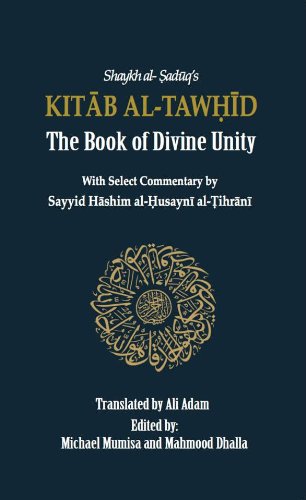The Book of Divine Unity (known also as Tawhid al-Saduq or Tawhid Ibn Babawayh) is a work dating from the Abbasid era, written by one of the most important figures of early Shi’i scholarship, Abu Ja’far ibn Ali ibn al-Husayn ibn Musá ibn Babawayh al-Qummi, usually known as al-Shaykh al-Saduq. In the present work al-Saduq sets out to elucidate a diverse range of theological and philosophical issues surrounding the nature of God, and the God-world relationship. Rather than write a work of dialectic theology (kalam), al-Saduq relies almost entirely on the transmitted sayings (hadith) of the Prophet and the impeccable Imams of the Twelver (Ithna ashari) tradition that engage directly with questions such as the Oneness of God, free will and predestination, and the significance of revelation. al-Saduq’s employment of a traditionist methodology to tackle the sophisticated theological debates of his day highlight the relatively unrecognised contribution of a philosophically rich corpus of Imam hadith to the early development of Muslim religious thought. The debates over theological doctrine that this work contributed to, both within and between Muslim schools, are of course not limited to that time, and it is envisaged that this translation will bring to new light the unique manner in which the traditions of the Prophet and the Impeccable Imams of the Twelver tradition speak to universal concerns of religious enquiry, Muslim and non-Muslim alike.
----
Al-Shaykh al-Ṣadūq is the title given to Abu Ja’far Muhammad ibn ‘Ali ibn Babawaih al-Qummi or commonly known in English as Ibn Babawayh. He was the leading traditionist of his time (4th Century A.H.) and one of the most outstanding traditionists of Shi’ite Islam. He earned the title of al-Shaykh al-Saduq on account of his great learning and his reputation for truthfulness. It is a title which he also shares with his father. Al-Shaykh al-Saduq was born and grew up in Qom. He was educated by his father and came into close contact with all the leading scholars of Shi’ite Islam in Qom and studied under many of them.


